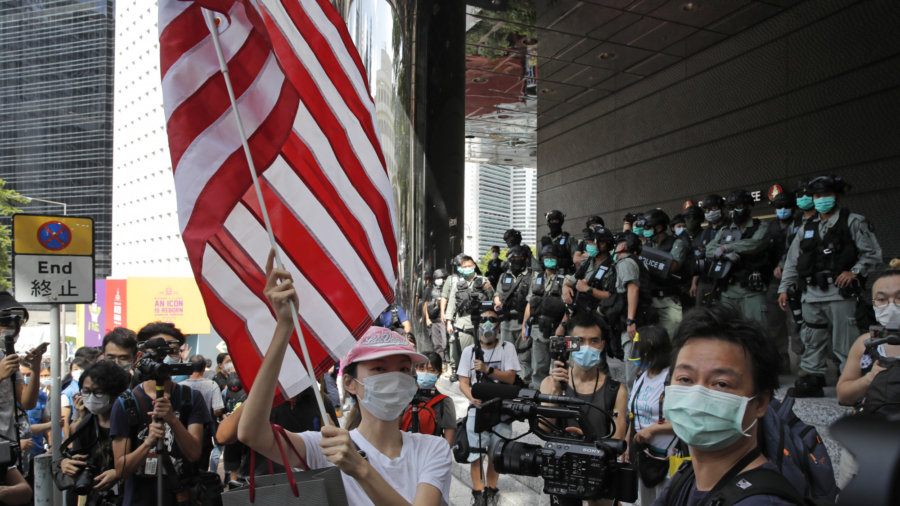BEIJING—The United States on Tuesday issued a sweeping new advisory warning against travel to mainland China and Hong Kong, citing the risk of “arbitrary detention” and “arbitrary enforcement of local laws.”
The advisory is likely to heighten tensions between the sides that have spiked since Beijing’s imposition on Hong Kong of a strict new national security law in June that has already been met with a series of U.S. punitive actions.
The statement warned U.S. citizens that China imposes “arbitrary detention and exit bans” to compel cooperation with investigations, pressure family members to return to China from abroad, influence civil disputes and “gain bargaining leverage over foreign governments.”
“U.S. citizens traveling or residing in China or Hong Kong, may be detained without access to U.S. consular services or information about their alleged crime. U.S. citizens may be subjected to prolonged interrogations and extended detention without due process of law,” the advisory said.
In Hong Kong, China “unilaterally and arbitrarily exercises police and security power,” the advisory said, adding that new legislation also covers offenses committed by non-Hong Kong residents or organizations outside of Hong Kong, possibly subjecting U.S. citizens who have publicly criticized the Chinese regime to a “heightened risk of arrest, detention, expulsion, or prosecution.”
When in Hong Kong, U.S. citizens are “strongly cautioned to be aware of their surroundings and avoid demonstrations,” the advisory said.
Last month, the Trump administration suspended or terminated three bilateral agreements with Hong Kong covering extradition and tax exemptions, citing Beijing’s violation of its pledge for Hong Kong to retain broad autonomy for 50 years after the former British colony’s 1997 handover to Chinese rule.
Other Western nations have also suspended their extradition treaties with Hong Kong following the national security’s law’s passage.
The United States has also acted to end special trade and commercial privileges that Hong Kong had enjoyed and has imposed sanctions on Hong Kong and Chinese officials, including Hong Kong’s pro-Beijing leader Carrie Lam, involved in enforcing the new security law.
Tensions between Beijing and Washington have hit their lowest point in decades amid simmering disputes over trade, technology, Taiwan, Tibet, the South China Sea, the coronavirus pandemic and, most recently, Hong Kong. The impact of the tensions has been felt in the tit-for-tat closures of diplomatic missions as well as visa restrictions on students and journalists.
The latest travel advisory did not offer any new warnings regarding COVID-19 in mainland China and Hong Kong, but referred travelers to earlier notices advising Americans to avoid the regions and return home from them if possible.
President Donald Trump has assigned blame to the Chinese regime for the coronavirus outbreak in the United States.
The virus was first detected in the central Chinese city of Wuhan late last year, leading to the global pandemic. Critics have accused the Chinese regime of a cover-up attempt.


